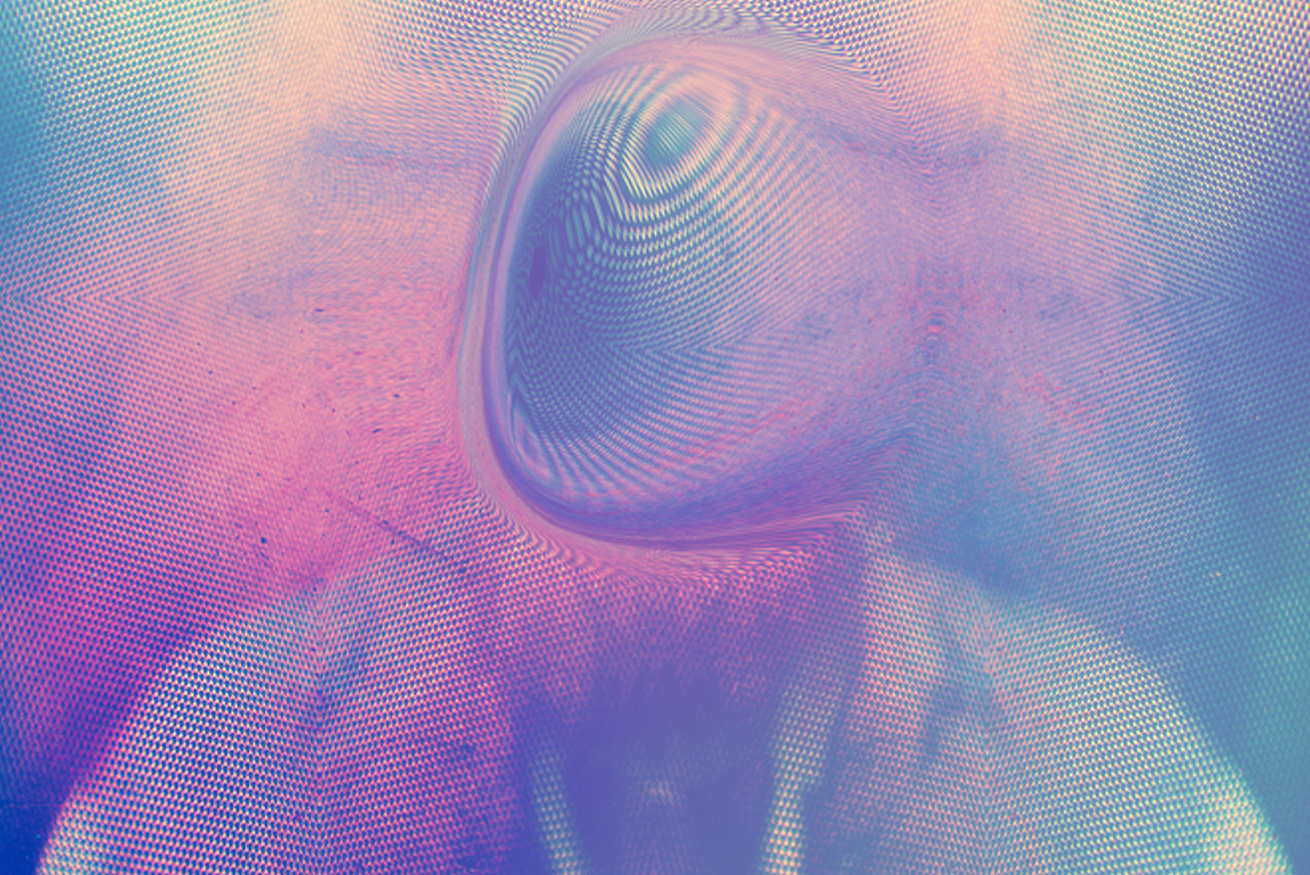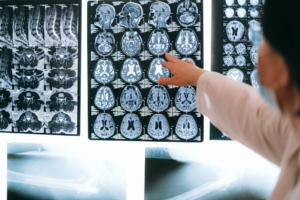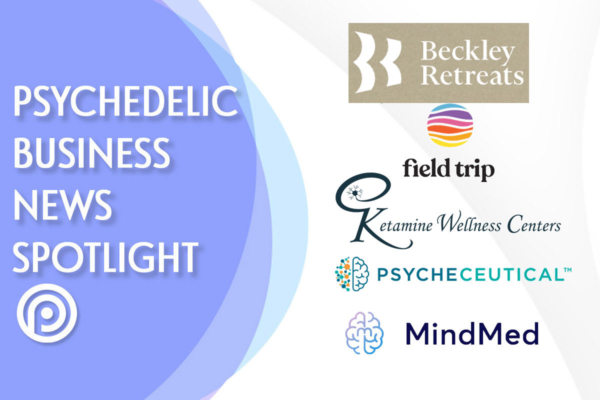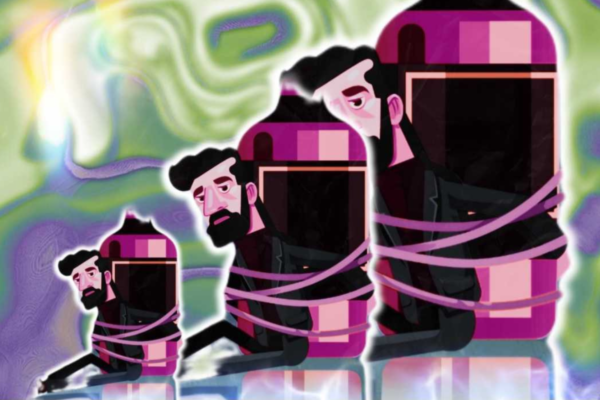
Anyone who has ever cared for a loved one living with dementia can testify that it’s a horrible condition. First, it attacks a patient’s cognitive functioning, triggering forgetfulness, distorting their reality, and robbing them of precious memories. Later, it kills off brain cells associated with muscle control, gradually limiting a patient’s ability to walk, stand, button a shirt, or even swallow food.
According to CDC estimates, about 5.8 million people have Alzheimer’s and dementia and, by 2060, that number could balloon to more than 14 million. Currently, there is no known cure for dementia or many of the diseases that cause it — but a few dedicated trailblazers believe psychedelics could offer a tremendous breakthrough.
Dr. James Kuo, CEO of Return Health, is one of those people. With a dual background in medicine and business, he’s devoted his career to innovative, out-of-the-box drug development for challenging conditions. And now, he and his team have set their sights on dementia.
“It’s a devastating problem, it’s a costly problem, and, aside from COVID, it’s the epidemic of our time,” he says. “Right now, psychedelics seem to be the most promising option.”
The Current State of Dementia Research
Despite the growing prevalence of dementia worldwide, the past few decades of drug development have delivered dismal results. “It’s known as a graveyard of a lot of drug development programs,” Dr. Kuo says. And that’s primarily because it’s a highly complex issue — multiple diseases lead to dementia, and we don’t know much about their causes.
For example, when a person dies from Alzheimer’s, neuroimaging often shows plaques and tangles on key parts of the brain. Drug development programs have focused on removing those plaques, but it’s still unclear whether they’re the cause or result of the disease. According to Dr. Kuo, if the plaques are the result, then removing them would do little to help the patient. And that could explain why many new Alzheimer’s drugs have only a modest effect on the disease.
And while the medical field is increasingly turning to DNA testing and genome sequencing to clarify the root causes of various diseases, our understanding of dementia is still murky at best.
That’s why Return Health is taking a different approach. “We’re treating the symptoms of dementia using psychedelics,” Dr. Kuo says. “Which means our approach is somewhat agnostic to the particular cause.”
Why Psychedelics Might Be the Answer
Of course, psychedelics like psilocybin and LSD are still considered schedule 1 drugs in the US. From a pharmaceutical standpoint, that’s a massive headache. In addition to the usual hurdles for approval, drug companies will also have to go through DEA licensing and institutional review boards.
So, why even bother with psychedelics? Because, in short, there’s a ton of promise.
First, there’s evidence that psychedelics help with treatment-resistant mental illnesses that share symptoms with Alzheimer’s and dementia.
“Preliminary clinical trials with psilocybin show persisting reductions in depressed mood, anxiety, and addictive behaviors,” says Dr. Albert Garcia-Romeu, assistant professor of psychiatry and behavioral sciences at Johns Hopkins. “This suggests psychedelics could have therapeutic benefits in some patients with neurodegenerative disorders, such as Alzheimer’s Disease, that are characterized by neuronal atrophy and are often comorbid with depressed mood.”
Then, there’s the suggestion that psychedelics can help stop or even reverse cognitive decline by decreasing neuroinflammation, inducing neurogenesis (the process of forming new neurons in the brain), and improving neuroplasticity (the brain’s ability to form new neural pathways and remap).
“Psychedelics are well-observed to basically rewire the brain,” Dr. Kuo says. “So if you have damaged a part of the brain — like the hippocampus, which is responsible for short-term memory — we think it’s important to rewire it around those damaged sections.”
Most research on psychedelics for mental illness and neurodegenerative disorders has centered on psilocybin, MDMA, and DMT because they all work through a similar mechanism of action: by hitting the 5HT2A serotonin receptor (which is responsible for the psychedelic effect patients experience).
Return Health, however, is focused on DMT because it’s shown the most efficacy in neurogenesis. The team is currently working with derivatives of the DMT molecule because, as Dr. Kuo says, it’s not perfect and needs to be optimized.
“Things you find in nature are seldom the optimal drug, but they can point you in the right direction,” he says.
What’s Next for Psychedelics As a Treatment for Dementia
There’s still a long road ahead in terms of understanding dementia and who would benefit most from psychedelic-based treatments. And there will likely be plenty of regulatory setbacks to slow down the process to drug approval.
Fortunately, Dr. Garcia-Romeu, who is currently working on a study at John Hopkins examining the impact of psilocybin on early-stage Alzheimer’s, says the tides are turning.
“People in the medical and mental healthcare professions seem quite interested in exploring psychedelics as a new direction for developing novel treatments,” he says. “And the enthusiasm has spread to the financial and pharmaceutical sectors as well.”
Dr. Kuo is also encouraged by evidence-based research and his company’s progress. Regardless of the obstacles ahead, he feels the work is worthwhile.
“We’re very optimistic that we’re going to be successful,” Dr. Kuo says. “And if we are successful, I believe we’re going to change the world.”





